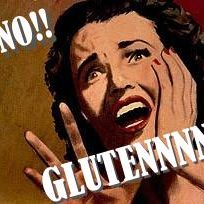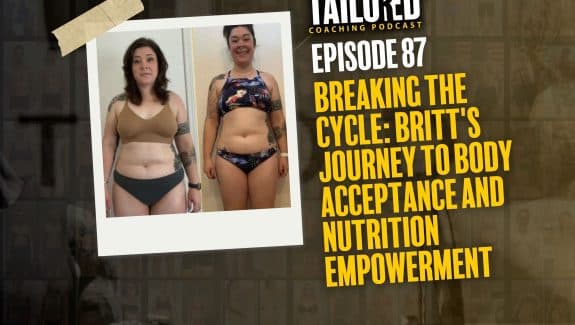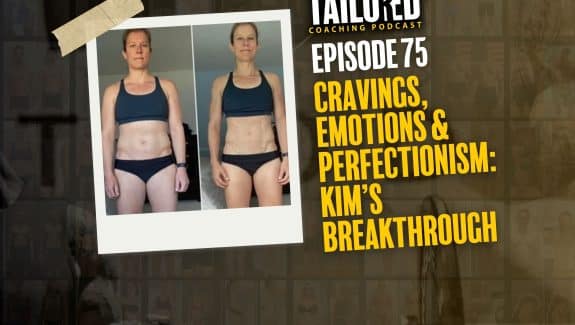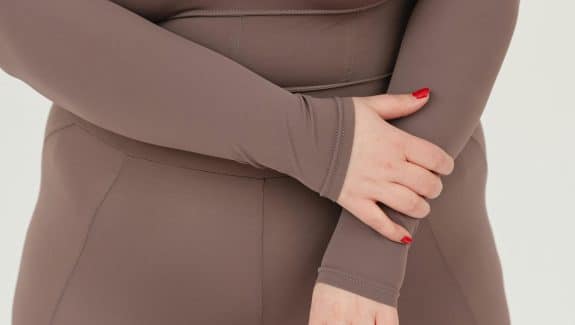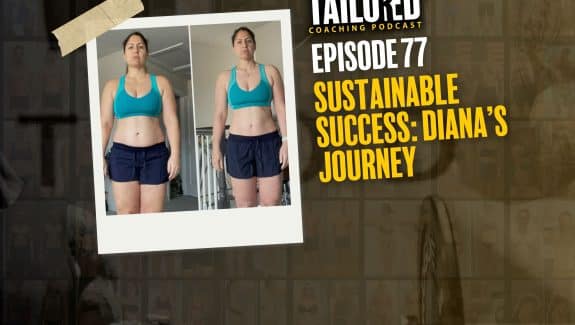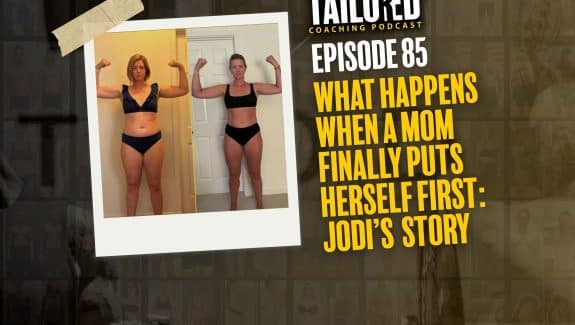The biggest question on gluten… Should we avoid it? Or is the media hype on it all bull shit?!
Well, I guess it really depends on the individual. But overall, we don’t need to be as worried about it as most people are.
The problem with what the media is making us all believe is that they portray gluten sensitivity to be a much more common problem then it truly is.
That being said, it is true what they say about gluten. It isn’t great for you by any means, but it also wont kill you or make you fat.
Unless you actually do have an intolerance or sensitivity to it, which isn’t as common as people think it is.
So today I will be the one who says it… EAT GLUTEN! Watch yourself live through the experience!! And it’ll taste amazing! 😉
But really, as funny as this topic is too me, I will be bringing you some knowledge and light to the subject so you can understand why it is what it is today. And who knows, maybe you’ll end up finding out that you should be staying away from gluten because some actually need too.
What Is Gluten?
Gluten is problem not what you think it is, so before I tell you just stop reading and try to answer yourself… “What is gluten?”
Is it wheat? Yeast? Flavor? ….A seed?? Many answers I’ve heard, all wrong though.
Gluten is a type of protein used as glue. Yep, it’s protein-glue.
Gluten is a protein found inside wheat that is used to bind things together as glue because of the “sticky” like substance it can have.
It can help food taste a little better and stay together longer and more efficiently.
So it is used in all sorts of things now days… in fact…
It’s also used to make envelopes. It’s used in the sticky part we lick…. I know, weird!
Does Gluten Make You Fat?!
I have a strong opinion and belief that gluten is not the reason for people gaining weight. It isn’t the ingredient gluten but the foods they are eating that contain gluten, which are making them overweight.
You see, people eat a dough filled cheese dipped pretzel or a Krispy Kreme donut both which are filled with gluten containing ingredients… now let’s be smart people, was it the gluten or the junk Americans have been putting in their mouths??
The junk. Not the Gluten.

If Americans were getting their gluten from Sprouted Grain Breads, rather than processed junk I believe it would be a completely different story.
But before I blame all obesity on junk, I will admit that some will gain weight eating gluten. Why you ask??
Well because they may have an intolerance or sensitivity to gluten, therefore causing a hormonal disturbance or a digestive issue. This could definitely contribute to some weight gain, but not as much as the junk will.
But let’s go back to the junk food subject for a second… People need to fully understand how many things gluten is actually in. Half of these do not need gluten, but for taste, texture and preserving the companies add it in. Here is a small list…
- BBQ Sauce
- Breaded Fish & Meats
- Canned & Dried Soups
- Cereal
- Cookies & Cakes
- Crackers
- Flavored Potato Chips (potatoes weren’t created with gluten, though…)
- Couscous
- Frozen Dinners
- Pasta
- Pies
- Rice Mixes (rice doesn’t have gluten, originally)
- Sauces & Gravies
- Most Condiments
- Seasonings
- Soy Sauce
- Teriyaki Sauce
- Salad Dressings
- Ice Creams
- Cough Drops (What the F^*K?!)
- And Sadly… Much, MUCH, More.
Does Gluten Have Any Benefits?
Gluten as an ingredient or substance doesn’t really have many benefits. BUT there are many whole foods containing gluten that do have benefits.
These are things like whole-wheat products, such as sprouted grains. This is a great lower glycemic carb choice loaded with fiber and minerals that can be a great benefit in someone’s diet.
The list of whole grain products containing vitamins, minerals, and fiber that we can benefit from is massive and 99% of them contain gluten.
So unless you’re gluten sensitive or intolerant, there is nothing wrong with keeping gluten in your diet with moderation as long as it comes from these types of healthy sources.
Some people have cut gluten completely from their diet, simply because of fear from media or to jump on the newest fad diet, and the result has been nutrient deficiencies.
If you regularly eat Ezekiel bread for instance and decide to cut all gluten out of your diet but don’t up your intake of vitamin B, iron and fiber, you may become deficient in one of these because you’ve removed your biggest source of it in your diet.
So when it comes to gluten being healthy for you, you just need to make the proper adjustments if you decide to remove it and also determine if it is necessary to remove it in the first place.
Most of the times that its needed to be removed from a diet is really just the junk you eat containing gluten that needs to be removed, not the whole food products containing gluten.
How To Tell If YOU Have A Problem With Gluten?
Before I even describe how to determine if you have intolerance or an allergy to gluten, you must know the difference.
I hear people all the time tell me how they’re allergic to gluten, when in reality that is almost always completely false.
Only 2% of adults in America have a food allergy and 5% of children (who often outgrow the allergy, which is why the percentage drops to 2%).
These can be allergies to the healthiest of foods from eggs to fish to milk.
The point is, you’re more likely to have intolerance than an allergy and even intolerances are still rare. But they’re out there, so you should know the signs.
A food allergy is an exaggerated response of the immune system after consuming something that your body cannot handle correctly.
Essentially when we consume things that the body isn’t built or doesn’t like to consume, we have blood cells that attach to antibodies that kill the bacteria. This is how our bodies stay healthy and avoid diseases, illness, etc.
But sometimes the “normal” thing for the body to do, the body fighting off and killing bacteria, just doesn’t happen. This is what happens to people with food allergies.
For these people they will almost immediately experience symptoms from the allergy, such as tingling/itching of the mouth, rashes/hives on the skin, throat inflammation/swelling, stomach cramping, diarrhea, or vomiting.
As you can see, these can be pretty bad and graphic symptoms and therefore making it quite easy to tell if you’re allergic to gluten… if you’ve eaten bread and experienced one of these things within minutes to an hour, you may have an allergy to gluten.
Now, food intolerance is something very much different. In scientific terms it is called FIR (Food Immune Reactivity) and it is a delayed reaction of consuming foods the body cannot handle properly.
Food intolerances don’t only come from gluten or wheat, just like allergies they can range from many different foods.
But unlike the allergy, it is not an immediate response and it can be much less aggressive yet ongoing.
Symptoms can be anything from skin issues such as eczema, all the way too digestive issues like IBS.
And just like the allergies, there is no medication or pill that can completely fix the issue. The only way to deal with this is to remove the catalyst in which is causing the issue.
So making these points leads me to how you can personally figure out if gluten is a problem for you.
First things first, do you throw up or break out in hives when eating bread? If not, you do not have an allergy. So that one is an easy answer.
Now for the intolerances.
Try to determine if you have any skin issues like rashes or acne, hair issues [hair falling out when brushing], digestive issues [constipation, diarrhea or bloating], low hormonal function [energy loss, body fatigue, adrenal/thyroid issues, sleep issues, mood swings, or low sex drive] or anything else out of the ordinary going on with your body that you cannot explain.
Once you’ve determine that you do experience any of these things, could be small symptoms but still unexplainable and irritating, its time to eliminate foods that may cause this.
These foods vary, so it is not only gluten that causes intolerances like these.
My recommendation is to do an elimination style diet; I call it my “Body Reset Diet”.
During this you will take 21-30 days to eliminate the foods/ingredients listed below.
[May only take 2-3 weeks, but it can take up to 30 days so be patient before quitting]
- Caffeine
- Soy
- Dairy
- Gluten
- Grains
- Peanuts
- Legumes
- Processed Foods of ALL Kind
Once you’ve gone at least 21 days, assess the symptoms and if they’re still occurring. Most likely that will have stopped and you will have lost body fat in the process as well since this is a very healthy weight loss diet as well and the food intolerance could’ve also been creating the plateau you were experiencing.
Now that you’ve eliminated the problem, its time to nail down which of these foods were causing the issue.
So you will now slowly, one by one, add the foods back in and watch for symptoms to occur.
I always start with the one the client missed the most, so if they loved having black beans in their salad and green beans as their veggie choice… let them have them!
Assess throughout the week and assess if anything has happened at all. If you experience the symptom, remove that out and wait 4-7 days before adding another food back in.
If you do not experience the symptom, that food choice is probably just fine and you can move to the next food to add in the following week.
This is the best way to figure out if you have gluten intolerance, remove it and watch if the symptom leaves! Pretty simple!
So there it is, my way of shutting up the gluten haters and telling it how it is!
Hope this helped you out, took away your fear of gluten or shed some knowledge on you about something you shouldn’t be consuming.
If you feel like there is more to your story and need a bit more help from a coach, please click this link here or the picture below and you can get a free one on one strategy session with me to discuss your goals and diet/training.

